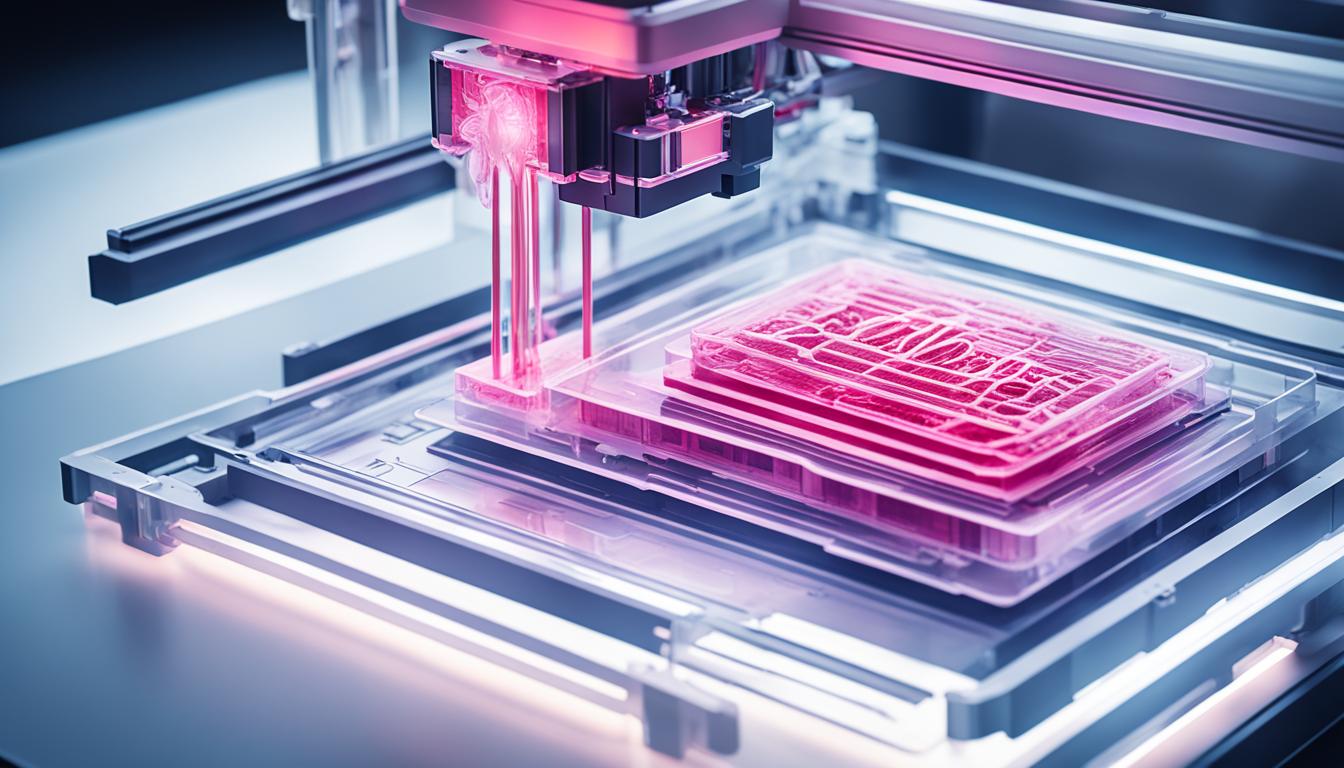
Exciting innovations in the field of biotechnology are poised to revolutionize the healthcare landscape by the year 2025. Cutting-edge advancements in gene therapy and personalized medicine, enabled by breakthroughs in CRISPR gene editing and targeted therapies for genetic disorders, will transform the way we prevent, diagnose, and treat diseases. Moreover, the boundless potential of bioengineering and regenerative medicine, including tissue engineering, organ regeneration, and 3D bioprinting of human tissues, will create new possibilities for restoring health and improving patient outcomes.
Alongside these advancements, the integration of artificial intelligence (AI)-driven drug discovery and development, coupled with the power of bioinformatics and big data analytics, will further accelerate the pace of innovation in the life sciences. These biotechnology breakthroughs will profoundly shape the future of healthcare, empowering healthcare professionals to provide more precise, effective, and personalized precision medicine solutions for patients in the years to come.
Key Takeaways
- Advances in gene therapy and personalized medicine, powered by CRISPR gene editing and targeted therapies, will transform disease treatment.
- Bioengineering and regenerative medicine, including tissue engineering, organ regeneration, and 3D bioprinting, will create new possibilities for restoring health.
- AI-driven drug discovery and development, combined with bioinformatics and big data analytics, will accelerate innovation in the life sciences.
- These biotechnology breakthroughs will profoundly shape the future of healthcare, leading to more precise, effective, and personalized solutions for patients.
- The impact of biotechnology on healthcare by 2025 will be transformative, revolutionizing the way we prevent, diagnose, and treat diseases.
Gene Therapy and Personalized Medicine
CRISPR (Clustered Regularly Interspaced Short Palindromic Repeats) technology has revolutionized gene editing, enabling precise and targeted modifications of the genome. By 2025, CRISPR-based therapies are expected to become more prevalent, offering new treatments for genetic disorders, cancer, and other diseases. CRISPR will also enable the development of more personalized medicines, tailored to an individual’s unique genetic profile and disease characteristics.
CRISPR and Gene Editing
Advances in biotechnology will lead to the development of targeted therapies for genetic disorders. By identifying the specific genetic mutations or defects underlying a disease, researchers can design precision treatments that address the root cause. These targeted therapies will be more effective and have fewer side effects compared to traditional, one-size-fits-all approaches. This shift towards personalized medicine will significantly improve outcomes for patients with genetic diseases.
Targeted Therapies for Genetic Disorders
The integration of CRISPR technology with biotechnology advancements will revolutionize the way we treat genetic disorders. By precisely targeting and correcting the underlying genetic defects, CRISPR-based therapies can offer new hope for patients suffering from a wide range of genetic diseases. Additionally, the ability to tailor treatments to an individual’s unique genetic profile will lead to more effective and personalized healthcare solutions.
Bioengineering and Regenerative Medicine
Biotechnology advancements are set to unleash new possibilities in the realms of tissue engineering and organ regeneration. By the year 2025, researchers are expected to make significant strides in growing human tissues and even entire organs using stem cells and other innovative biomaterials. This groundbreaking progress could pave the way for the development of lab-grown organs for transplantation, reducing our reliance on donor organs and vastly improving outcomes for patients in dire need of organ replacement.
Tissue Engineering and Organ Regeneration
The integration of cutting-edge 3D bioprinting technology with biotechnology will enable the creation of highly complex, fully functionalized human tissues and organs. By 2025, 3D bioprinters are poised to become increasingly advanced, empowering researchers to precisely print living cells, specialized biomaterials, and essential growth factors to fabricate intricate, tissue-engineered structures. This revolutionary advancement will transform the field of regenerative medicine, providing novel avenues for repairing or replacing damaged tissues and organs with bespoke, personalized solutions.

How will advances in biotechnology impact healthcare in 2025?
Artificial intelligence (AI) will play a significant role in accelerating drug discovery and development within the biotechnology industry. By 2025, AI-powered systems will be able to analyze vast amounts of data, identify promising drug candidates, and optimize the drug development process. This will lead to more efficient and cost-effective drug discovery, potentially shortening the time it takes to bring new treatments to market.
AI-Driven Drug Discovery and Development
The integration of bioinformatics and big data analytics will be crucial in leveraging the vast amounts of data generated by biotechnology advancements. By 2025, advanced computational tools and algorithms will be able to analyze genetic sequences, protein structures, and other biological data to uncover new insights and drive innovation in healthcare. This will enable researchers to make more informed decisions, accelerate the development of personalized treatments, and improve patient outcomes.
Bioinformatics and Big Data Analytics
The impact of biotechnology on healthcare by 2025 will be profound. Advancements in gene therapy, personalized medicine, bioengineering, and regenerative medicine will transform the way we prevent, diagnose, and treat diseases. The integration of AI, bioinformatics, and big data analytics will further accelerate the pace of innovation, leading to more efficient drug discovery and personalized treatments. These biotechnology breakthroughs will pave the way for a healthier future, where patients can benefit from more precise, effective, and personalized healthcare solutions.
Conclusion
The impact of biotechnology on healthcare by 2025 will be profound. Advancements in gene therapy, personalized medicine, bioengineering, and regenerative medicine will transform the way we prevent, diagnose, and treat diseases. The integration of AI, bioinformatics, and big data analytics will further accelerate the pace of innovation, leading to more efficient drug discovery and personalized treatments.
These biotechnology breakthroughs will pave the way for a healthier future, where patients can benefit from more precise, effective, and personalized healthcare solutions. As we look ahead, the possibilities are truly exciting. The advancements in this field will not only improve patient outcomes but also redefine the very nature of healthcare as we know it.
By embracing these technological innovations, we can look forward to a future where personalized therapies, regenerative treatments, and predictive diagnostics become the norm. This shift towards a more tailored, data-driven approach to healthcare will empower individuals to take a more active role in managing their own well-being, ultimately leading to a healthier and more vibrant society.
FAQ
What is the impact of biotechnology on healthcare by 2025?
Advancements in biotechnology are poised to revolutionize healthcare by 2025. Gene therapy and personalized medicine, enabled by CRISPR gene editing and targeted therapies for genetic disorders, will transform the treatment of disease. Bioengineering and regenerative medicine, including tissue engineering, organ regeneration, and 3D bioprinting of human tissues, will create new possibilities for restoring health. Additionally, AI-driven drug discovery and development, along with the power of bioinformatics and big data analytics, will accelerate the pace of innovation in the life sciences.
How will CRISPR technology impact healthcare by 2025?
By 2025, CRISPR-based therapies are expected to become more prevalent, offering new treatments for genetic disorders, cancer, and other diseases. CRISPR will also enable the development of more personalized medicines, tailored to an individual’s unique genetic profile and disease characteristics.
What are the advancements in personalized medicine by 2025?
Advances in biotechnology will lead to the development of targeted therapies for genetic disorders. By identifying the specific genetic mutations or defects underlying a disease, researchers can design precision treatments that address the root cause. These targeted therapies will be more effective and have fewer side effects compared to traditional, one-size-fits-all approaches.
How will bioengineering and regenerative medicine impact healthcare by 2025?
By 2025, researchers are expected to make significant progress in growing human tissues and even entire organs using stem cells and other biomaterials. This could lead to the development of lab-grown organs for transplantation, reducing the reliance on donor organs and improving outcomes for patients in need of organ replacement. Additionally, the integration of 3D bioprinting technology with biotechnology will allow for the creation of complex, functionalized human tissues and organs.
How will AI and bioinformatics influence healthcare innovation by 2025?
By 2025, AI-powered systems will be able to analyze vast amounts of data, identify promising drug candidates, and optimize the drug development process, leading to more efficient and cost-effective drug discovery. The integration of bioinformatics and big data analytics will enable researchers to make more informed decisions, accelerate the development of personalized treatments, and improve patient outcomes.
